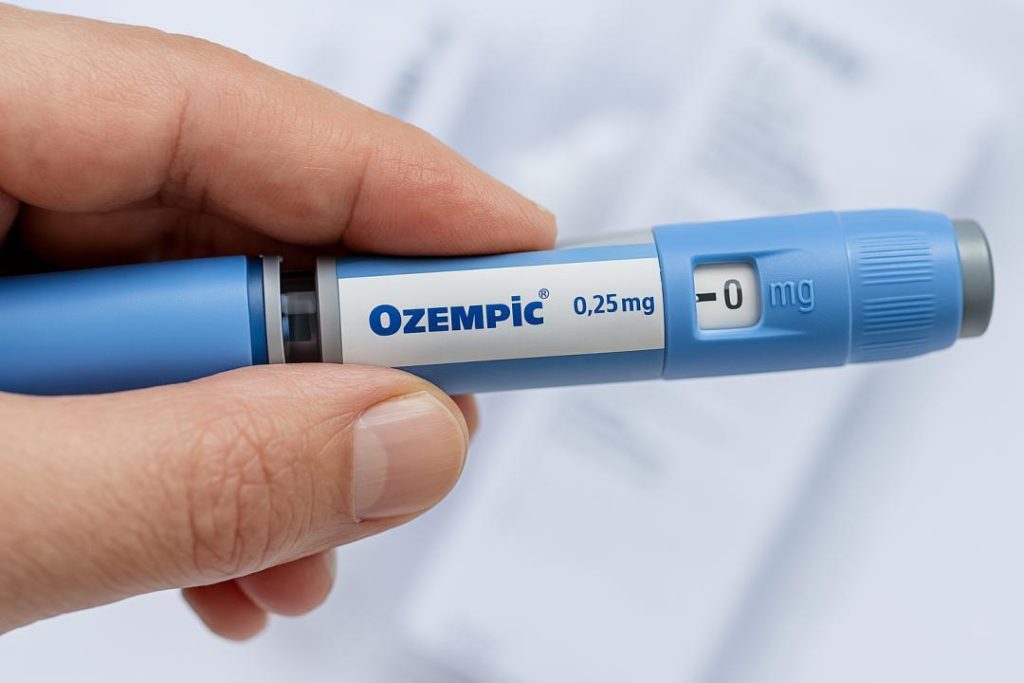
Do GLP-1 Drugs Like Ozempic Lower Blood Pressure?
High blood pressure is a silent killer, and managing it is crucial to reduce the risk of heart disease, stroke, and kidney disease. While lifestyle changes and medications are essential for controlling blood pressure, new research suggests that GLP-1 drugs like Ozempic, Wegovy, and Trulicity may offer an added benefit beyond weight loss: lowering blood pressure.
GLP-1 (Glucagon-Like Peptide-1) drugs are commonly used to treat type 2 diabetes, but their effects on blood pressure are gaining attention. These medications have been shown to improve blood vessel function, support kidney health, and ease pressure on the heart, making them a promising option for managing high blood pressure, even in people without diabetes.
How Do GLP-1 Drugs Work?
GLP-1 drugs work by mimicking the action of a natural hormone in the body, which helps regulate blood sugar levels and appetite. They stimulate the release of insulin, increase insulin sensitivity, and slow down gastric emptying, reducing hunger and improving glucose control. Additionally, GLP-1 drugs have been found to have a positive impact on cardiovascular health, which is attributed to their ability to improve blood vessel function, reduce inflammation, and lower blood pressure.
The Blood Pressure-Lowering Effects of GLP-1 Drugs
Numerous studies have demonstrated the blood pressure-lowering effects of GLP-1 drugs. A meta-analysis of 14 clinical trials involving over 10,000 patients found that GLP-1 receptor agonists significantly reduced systolic blood pressure (SBP) and diastolic blood pressure (DBP) compared to placebo. The analysis also showed that the magnitude of blood pressure reduction was similar to that achieved with angiotensin-converting enzyme inhibitors (ACEIs) and angiotensin receptor blockers (ARBs), commonly used to treat hypertension.
Another study published in the Journal of the American College of Cardiology found that GLP-1 receptor agonist treatment reduced SBP and DBP in patients with type 2 diabetes and hypertension. The study also reported a significant reduction in blood pressure in patients without diabetes, suggesting that GLP-1 drugs may be effective in managing hypertension regardless of the presence of diabetes.
Mechanisms Behind Blood Pressure Lowering
Several mechanisms contribute to the blood pressure-lowering effects of GLP-1 drugs:
- Improved Blood Vessel Function: GLP-1 drugs increase nitric oxide production in blood vessels, which helps relax blood vessels and improve blood flow. This leads to reduced blood pressure and improved cardiovascular health.
- Kidney Health Support: GLP-1 drugs have been shown to reduce proteinuria (excess protein in the urine) and albuminuria (excess albumin in the urine), which are indicators of kidney damage. By supporting kidney health, GLP-1 drugs may help reduce blood pressure and the risk of kidney disease.
- Reduced Inflammation: GLP-1 drugs have anti-inflammatory properties, which may help reduce inflammation in blood vessels and improve blood pressure control.
- Cardiac Benefits: GLP-1 drugs have been shown to reduce the risk of cardiovascular events, such as heart attack and stroke, which are often associated with high blood pressure.
Real-World Applications
The blood pressure-lowering effects of GLP-1 drugs make them a promising option for managing hypertension, especially in patients with type 2 diabetes. However, it’s essential to note that GLP-1 drugs are not a replacement for established blood pressure medications. Instead, they may be used in combination with other therapies to optimize blood pressure control.
In patients without diabetes, GLP-1 drugs may be considered as an add-on therapy to manage hypertension, particularly in those with co-morbidities such as obesity, metabolic syndrome, or cardiovascular disease.
Conclusion
GLP-1 drugs like Ozempic, Wegovy, and Trulicity have been shown to lower blood pressure beyond weight loss, making them a promising option for managing hypertension. Their mechanisms of action, including improved blood vessel function, kidney health support, reduced inflammation, and cardiac benefits, make them an attractive addition to the treatment armamentarium for high blood pressure.
While more research is needed to fully understand the blood pressure-lowering effects of GLP-1 drugs, the available evidence suggests that these medications may offer a new approach to managing hypertension, particularly in patients with type 2 diabetes.
Source:
https://thepfc.club/blogs/news/can-diabetes-drugs-help-lower-blood-pressure






